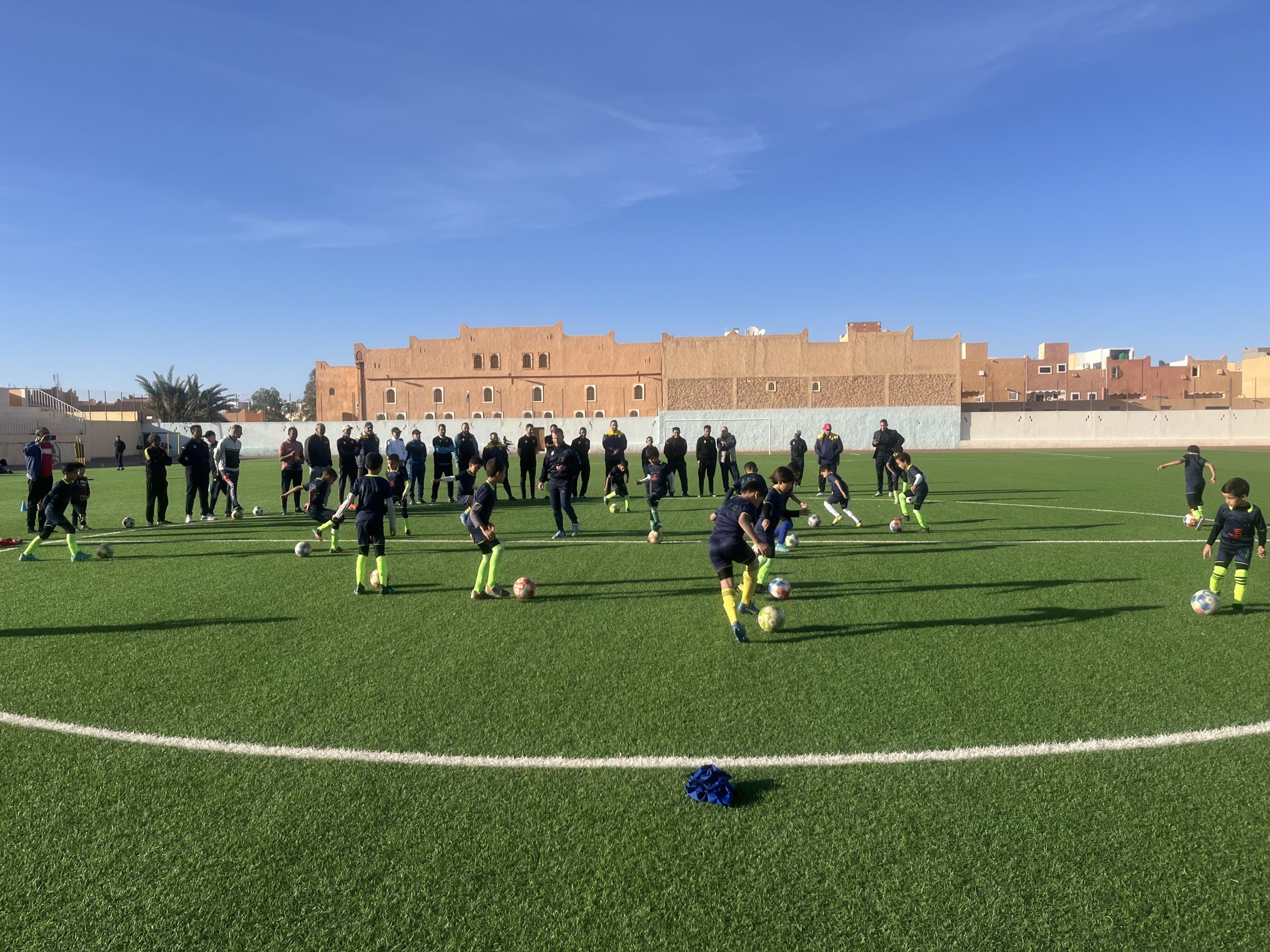
You ate what? Camel. You ate Camel. Yep, Camel.
You ate what?
“Camel.”
“You ate camel?”
“Yep, camel.”
In the heart of the Desert, at a small oasis in the middle of the Sahara, I received a powerful lesson on God’s provision. Arabic is a difficult language, and it’s not one often spoken by Americans. And coaches in the Sahara certainly don’t speak English! But God speaks in the languages we need to hear.
It all started with a simple invitation. A chance to provide 18 Muslim coaches with transformational, leadership, and technical/tactical coaching education. The catch? It was in a restricted Islamic country in the Sahara, and we were told: “We’re going to teach coaches about Jesus, but never mention His name.” Oh, and by the way, you’ll need to register with the U.S. State Department and get repatriation insurance.
For those unfamiliar, repatriation insurance covers the cost of flying your remains back home in case something happens to you. And just to make it more exciting, the country we were heading to had a “Level 4 – Do Not Travel” warning due to kidnapping and terrorism risks.
Travel went smoothly, and our “worker” (a code word for missionary in the Islamic world) kept commenting that this was the fastest and easiest he’d ever passed through passport control. God provides. The main reason for that success was the worker’s fluency in traditional Arabic and the presence of God in his life. People would light up when he spoke in their language. His joy and humility were apparent, and his passion for helping people lost in an oppressive religion and culture was inspiring.
However, while our worker spoke traditional Arabic, the local dialects spoken in the Sahara were different, and the language barrier would prove challenging.
A police escort from the airport made me wonder whether I should feel important or worried, but either way, we made it.
Jet-lagged but highly caffeinated, we began the first day of the coaching course. My first lecture was on transformational coaching which is based on inspiring and seeing change in others’ lives, not just making transactions. Simply put…Coaching people not only a Sport. I explained the basic idea to our translator and he seemed to be nodding in agreement. A good translator is essential when you don’t speak the language!
We kicked off with the topic of Identity, and I dove right in: “Your identity is not what you do, what you have, or what others say about you. It comes from a set of core beliefs or values that form the foundation of who you are.”
I felt confident I had nailed it—until I saw the confused expression on the translator’s face. He didn’t understand what I was saying! I whispered to our worker, “I don’t think he understands!” Panic set in.
I tried speaking slower. Then louder. I used hand gestures, pictures—nothing seemed to help. The realization hit: I had traveled halfway around the world to speak to a room full of people, and I couldn’t even communicate with them. We took a short break where I learned that the translator spoke English, but he was “rusty.” Instead of translating, he was only interpreting parts of what I said that he understood.
I considered the worst-case scenario….Should we just go home? But then, I remembered a piece of advice from Jamie Winship: “God, what do You want me to know, and what do You want me to do?” I prayed that prayer and decided to keep going.
Just then, a younger coach in the room raised his hand and, in perfect English (better than mine, in fact), began translating everything I’d said! He was a PhD in computer science, had studied in China, and was fluent in English. He was definitely the smartest person in the room and did an incredible job translating. Everyone smiled, and we pressed on with the course. However, there was a catch. He couldn’t be there the next day.
After the lecture, we moved to the field for the coaching sessions. Our new PhD translator was phenomenal. Translating a lecture is one thing, but translating a live coaching session is another! He was amazing.
Then, during the afternoon session, a young man with a very nice British accent introduced himself. He apologized for missing the morning session but said he would be present for the rest of the course. God provides! By the end of the day, we had three translators, each one amazing in their own way.
Final Thoughts:
God provides in the small details, if we are paying attention. It’s not just on the mission field; it’s in our everyday lives. Having a translator may seem like a simple thing, but God moves in the small ways. We often only see it when we truly abide in Christ (John 15:5). Be encouraged: the Holy Spirit is with you every day. Abide in Him, and He will abide in you, and you’ll begin to see the small miracles that happen in your life.
When you face a situation—good, bad, or somewhere in between—pray this to God, and then listen:
“God, what do You want me to know? What do You want me to do?”
Because God always provides, and His Word never returns empty.
Isaiah 55:11
“So shall my word be that goes out from my mouth; it shall not return to me empty, but it shall accomplish that which I purpose, and shall succeed in the thing for which I sent it.”
Acts 2
“And at this sound the multitude came together, and they were bewildered, because each one was hearing them speak in his own language. And they were amazed and astonished, saying, ‘Are not all these who are speaking Galileans? And how is it that we hear, each of us in his own native language?’”


